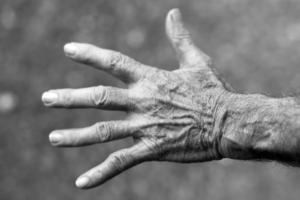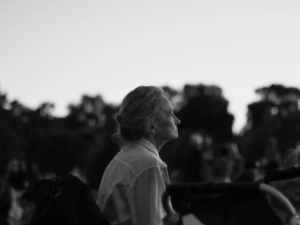In the quiet moments in their deathbed, before the final curtain falls, when the shadow of mortality looms large, human beings often embark on a profound journey of introspection. It is a time when the cacophony of everyday life fades into the background, and the whispers of existential ponderings grow louder. In these moments, people reflect not only on their own lives but on life itself. Seeking to distill wisdom from their experiences and impart it to those who will listen.
A Palliative nurse sat with those on their deathbed

Bronnie Ware, a compassionate soul who dedicated much of her nursing career to caring for the dying, bore witness to this timeless phenomenon. As a palliative care nurse, she stood at the bedside of countless individuals on their deathbeds in their final hours. Offering comfort, solace, and a listening ea
It was during these intimate encounters that she gleaned profound insights into the human condition. Insights that she would later share with the world in her internationally bestselling memoir, “The Top Five Regrets of the Dying – A Life Transformed by the Dearly Departing.”
At the heart of Ware’s memoir are five poignant regrets expressed by those on the brink of departing this world. These regrets serve as signposts, guiding us toward a deeper understanding of what it means to live a life of purpose, fulfillment, and authenticity.
Regret over Dedication to Work

The first regret, a lament over the dedication of too much time to work, strikes a chord with many. In a society that often equates success with career accomplishments and material wealth, it is all too easy to lose sight of what truly matters. Ware observed how individuals nearing the end of their journey regretted the hours, days, and years spent toiling away in pursuit of professional accolades. Only to realize too late that they had sacrificed precious moments with loved ones and neglected their own well-being in the process.
Yet, amidst the regret on their deathbed, there is a glimmer of hope. A recognition that it is never too late to reprioritize one’s life, to carve out space for the people and pursuits that bring joy and meaning. It is a reminder that true fulfillment lies not in the corner office or the size of one’s bank account. It lies in the richness of human connection and the pursuit of passions that ignite the soul.
Lament of Living Authentically

The second regret cuts to the core of human authenticity—the failure to live life on one’s own terms, free from the shackles of societal expectations and norms. Ware observed how many individuals expressed a profound sadness at having spent their lives conforming to the expectations of others rather than following their own dreams and aspirations.
In a world that often prizes conformity over individuality, it takes courage to chart one’s own course to embrace the unique gifts and talents that make each of us who we are. Yet, as Ware reminds us, the price of conformity is steep—the erosion of the soul, the gradual extinguishing of the inner flame that drives us toward our true purpose. It is a reminder that authenticity is not a luxury but a necessity—a prerequisite for a life well-lived.
Reflection on Lost Friendships

The third regret speaks to the transient nature of human connection—the regret over lost friendships and neglected relationships. In the hustle and bustle of modern life, it is all too easy to let friendships slip through the cracks and to prioritize work and other obligations over the nurturing of meaningful connections.
Yet, as Ware discovered, it is in the quiet moments of reflection that we come to realize the true value of those relationships—the laughter shared, the tears shed, the memories made. It is a reminder that true wealth lies not in material possessions but in the richness of human connection, in the bonds forged over a lifetime of shared experiences.
Suppression of Emotional Expression

The fourth regret, a lament over the suppression of emotions, strikes a particularly poignant chord. In a world that often prizes stoicism over vulnerability, many individuals find themselves suppressing their true feelings in order to maintain harmony with others. Yet, as Ware observed, this suppression comes at a cost—the erosion of the soul, the gradual accumulation of bitterness and resentment that can ultimately manifest as illness and disease, leading patients to their deathbed.
It is a reminder that emotional authenticity is not a sign of weakness but of strength—a testament to the courage it takes to be truly vulnerable in a world that often seeks to diminish our humanity. It is a reminder that true healing can only begin when we allow ourselves to feel fully and embrace the full spectrum of human emotion without fear or reservation.
Lament of Prioritizing Happiness

Finally, the fifth regret—a lament over the failure to prioritize happiness—serves as a powerful reminder of the fleeting nature of life itself. In a world that often prizes achievement over contentment, many individuals find themselves chasing after external markers of success, only to realize too late that true happiness lies not in the attainment of goals but in the journey itself.
It is a reminder that happiness is not a destination but a state of being—a choice that we make each and every day, regardless of our circumstances. It is a reminder that true fulfillment lies not in the pursuit of external validation but in the cultivation of inner peace and contentment.
In the end, Ware’s memoir serves as a poignant reminder of the fragility of life and the importance of living each day with purpose, passion, and authenticity before meeting your deathbed. It is a call to embrace the fullness of our humanity, to cherish the moments we have been given, and to live our lives in a way that honors the unique gifts and talents that make each of us who we are.
Sources
1. “Nurse reveals 5 most common deathbed regrets.” Metro. Steve Charnock. March 12, 2024.




